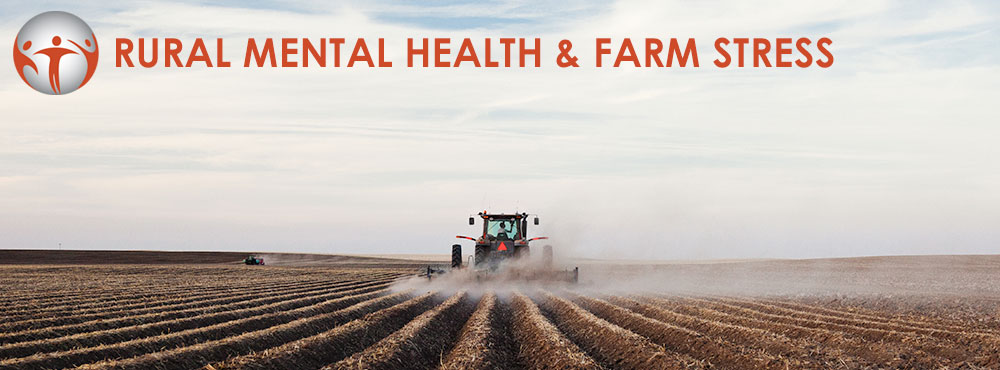Home > Rural Mental Health & Farm Stress

The rural mental health vision for the Mountain Plains MHTTC is to support increased access to providers of mental health services for the more than 60 million Americans living in rural communities. To achieve this, the Center develops and promotes training and technical assistance which supports the rural mental health workforce and reduces barriers to mental health treatment for rural residents.
The Center also recognizes that the agricultural community encounters unique challenges related to the accessibility, availability, and acceptability of mental health services. Specific training and resources have been developed to address mental health and suicide among agricultural workers and their families. Unless otherwise specified, “farm” and “farmer” refer to ranchers, farmers, farm managers/owners, and agricultural workers.
There are several resources available that provide summaries of agricultural mental health concerns, up-to-date data visualizations, and toolkits for addressing barriers to mental health services for farmers, farm managers/owners, ranchers, agricultural workers and their families.
These resources offer a variety of support for farmers including stress hotlines, disaster recovery, opioid abuse resources, and educational opportunities.
The COVID-19 pandemic has placed additional stress on farmers and ranchers, harming financial stability and increasing isolation. These resources consider the impact of COVID-19 specifically.
Stress management is an important skill for workers in high stress fields like farming and ranching. The following resources offer strategies for recognizing and managing stress, including suicide prevention hotlines, tools to identify risk.
The following resources are learning and development tools for individuals serving persons with mental health disorders. Resources include toolkits, webinar recordings, and upcoming trainings.
These resources provide information and data on topics related to farm stress and mental health including demographics, the agricultural workforce, the opioid crisis, suicide rates, health care professional shortages, disasters, and others.
The United States Department of Agriculture (USDA) funds state and county extension offices. These offices provide local resources on managing the financial and emotional stressors of farming, among many other topics.